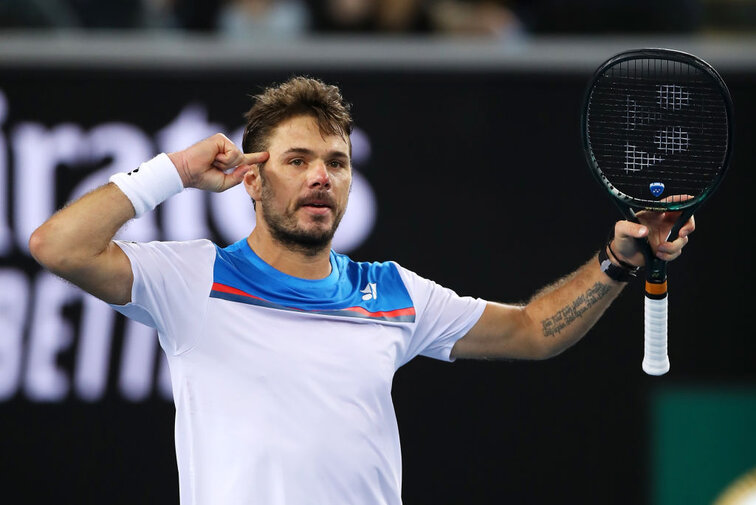Forehand: The unconscious pressure to have to play a winner
End the point with a winner? Doesn't always have to be, says tennis insider Marco Kühn.
by Marco Kühn
last edit:
Nov 22, 2020, 09:49 am

The teacher asks a question and you have no idea. You don't know the answer to his question, nor do you have any idea what he's talking about. So you automatically do what works most of the time. You put in the thinking pose and avoid the searching gaze of the teacher. You pretend you're very brooding.
We experience a similar automatic reaction in rallies. The ball flies over the net three times and then it builds up. You even often hold your breath. And then, two hits later, it discharges: the unconscious pressure of having to play a great ball that the opponent is no longer allowed to reach.
In this article I would like to analyze with you why this pressure exists and what you can actively do against it on the court. Our goal is to make you more confident in longer rallies.
Let's start.
Phase 1: The rally begins
At the beginning of the rally you are consciously playing safely. You want to place the ball constantly between the T and baseline. Just don't get too short. But as soon as the pace of the blows increases, the pressure begins to increase. In your head you hear a voice from far away that says to you: "You have to do something. You have to place the ball in such a way that it can no longer react over there!".
In many rallies, this voice is heard after the third or fourth stroke. And it gets louder and more shrill every beat. Then you play even faster on a fast ball from your opponent. Although this makes little sense rationally in the game situation. Sometimes you also want to sprinkle a stop ball. But you are immediately annoyed about this decision because it also made no rational sense.
With the start of the rally, the unconscious pressure of having to play a winner increases. What can that be? One of the main reasons could be that you see your opponent stronger than he is. It is easy to put the opponent on a pedestal. But it is often difficult to get him back down from there.
Try to draw a realistic and not an idealistic picture of your opponent. As long as his name is not Dominic Thiem, he will probably not knock the third ball around your ears in every rally.
Phase 2: You get more hectic
In the warm-up, you hit the ball cleanly. You swing out in a controlled manner, stand perfectly towards the ball and the sound of your stringing tells you that the forehand comes well in front of the baseline. In the match, however, the covering often sounds different. You can no longer just play from a standing start, you have to run more.
Your timing is different. You don't just have to go back and get to the ball on time. You also have to be able to assess the opponent's ball. This is difficult, complex, and requires more attention from you. Since you have to complete so many processes in an extremely short period of time, your hectic pace increases from one stroke to another.
You feel this hectic rush quite intensely. And that's exactly why you want to end the rally as quickly as possible. Ideally with the next hit. However, you are no longer drawing so calmly. What can you do in moments like this? Try to get your attention to the ball. Make it a habit to look at the ball as closely and for as long as possible. Many of your movements are stored in your subconscious. It is not necessary that you concentrate on every tiny element in your backward swing. You can use this budget of concentration to watch the ball.
If you have experienced this process during a rally, you will learn to trust yourself and your abilities more.
Phase 3: You want to force the point
I used to have a habit of wanting to play stops, even though the game situation didn't suit it at all. That was because I really wanted to close the point. Either point or mistake. If you think about it logically, there is often no reason whatsoever to want to force the point at any cost. The opposite may even be the case. It usually makes more sense to just keep the ball in play. Novak Djokovic masters this mental as well as tactical aspect in absolute perfection.
He remains absolutely calm in his movements. Djokovic never gets hectic. Maybe after a rally, when he thrashes a ball towards the tarpaulin. But in the rally itself, it often gives the impression that he has trained himself to perform the same movements over and over again with complete control.
Tip: Try to find out for yourself how you want to force points. Do you want to make the point with the second forehand? Do you go right on every slightly shorter ball of your opponent? Once you figure that out, you can take tactical action. Analyze for yourself how you can solve these game situations differently. For example, with a topspin ball played at a higher level or a forehand hit played more centrally.
The better you know yourself and your habits on the court, the better you will play tennis.
